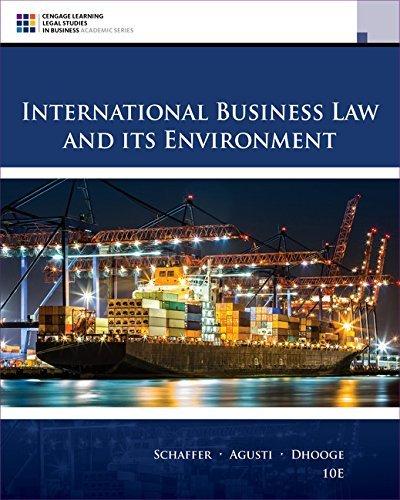In 1988, Semetex entered into an agreement with the Al-Mansour Factory in Baghdad, Iraq, an enterprise owned
Question:
The letter of credit was issued by the Central Bank of Iraq in February 1990 and confirmed by a bank in the United States, specifically, UBAF. The letter of credit conditioned payment solely on presentation of commercial invoices; a certificate of origin; an air waybill evidencing air shipment, freight prepaid, from the United States to Baghdad via Iraqi Airways or carriers authorized by Iraqi Airways; and a cable to Al-Mansour advising Al-Mansour of the flight number and date of arrival in Baghdad. It did not require evidence that control of the ion implanter had passed to a designated carrier before payment could be made.
1. What basic principle of letter of credit law does this decision uphold?
2. Is the court's decision correct given the many problems with the documentation as prepared by the freight forwarder and the additional complication of the Iraqi government asset freeze? Why or why not?
3. Is the court's definition of "outright fraudulent practice" too restrictive? What would be the consequences for letter of credit law if the court adopted a more liberal interpretation of fraud?
4. What could UBAF have done in the negotiation and drafting process to prevent the ultimate outcome in this case?
Fantastic news! We've Found the answer you've been seeking!
Step by Step Answer:
Related Book For 

International Business Law And Its Environment
ISBN: 9781305972599
10th Edition
Authors: Richard Schaffer, Filiberto Agusti, Lucien J. Dhooge
Question Posted:





